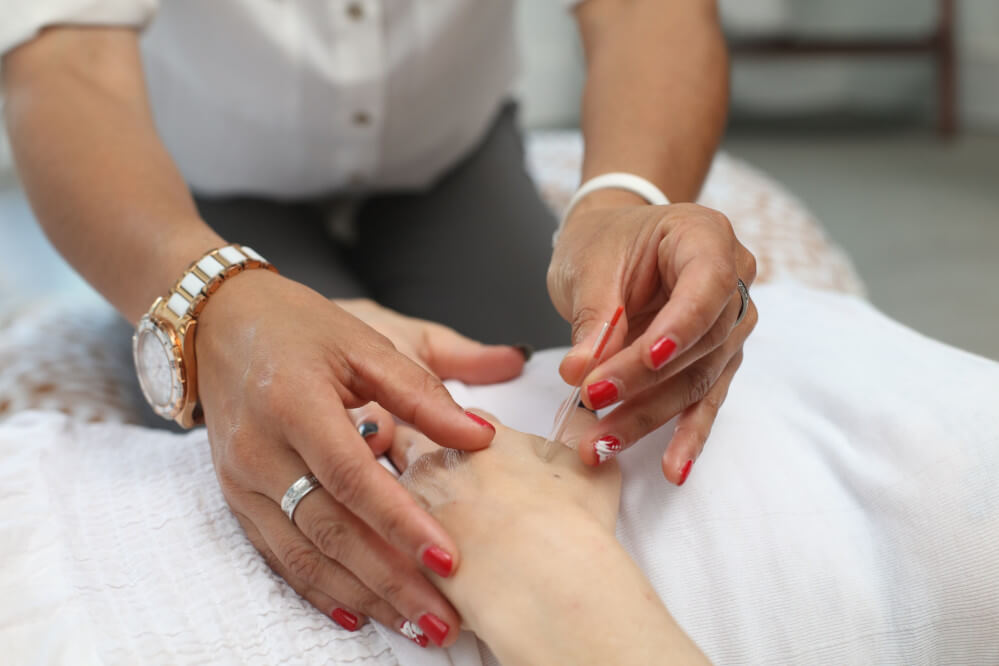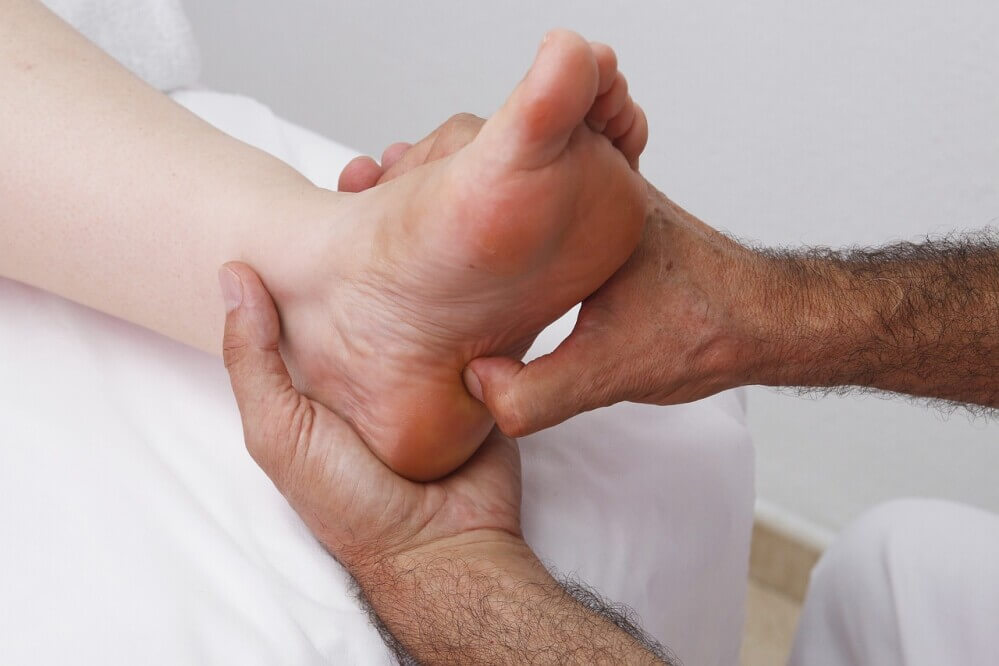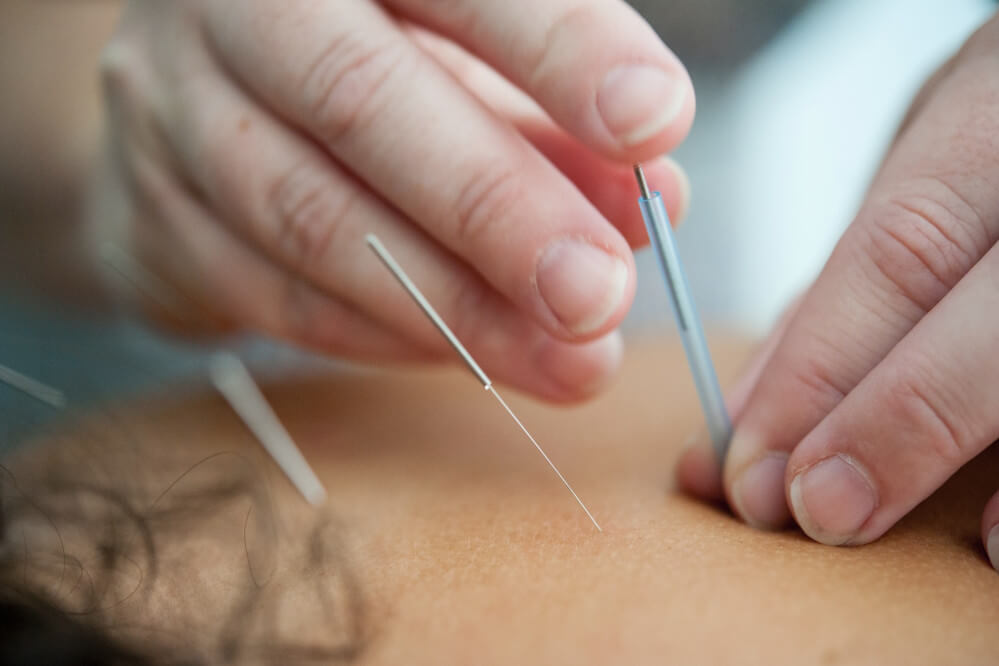To acupuncture or to acupressure, that is the question. Originating from traditional Chinese medicine (TCM), these two practices have shown their effect on restoring and creating balance and harmony in the body for over two millennia. They continue to grow in popularity as their benefits are utilized in preventative care and as a complementary treatment for conditions such as arthritis, chronic ailments, migraines, and many more.
However similar they may seem in their main goal and principles, they have substantial differences. But what are they exactly? Follow along as we unearth the differences between these two techniques and answer some of the most common questions like “What is acupuncture?,” “What is acupressure?” and “Is acupressure as effective as acupuncture?” along with others.
Understanding Acupuncture

Acupuncture is a revered form of traditional Chinese medicine dating back centuries. This therapeutic practice involves inserting needles into predetermined points of the body to alleviate discomfort and stimulate recovery. With over 300 such points recognized, this method is designed to enhance energy flow and restore balance within the body.
This versatile treatment has demonstrated efficacy for a variety of conditions, ranging from dental discomfort and nausea to headaches and migraines. Moreover, it has been used to manage menstrual cramps, anxiety and depression, and even addiction, underscoring its broad potential for promoting health and well-being.
Understanding Acupressure

As another popular TCM practice, acupressure is based on the belief that applying firm pressure in specific acupoints stimulates the nervous system and brain to release endorphins and neurotransmitters to ease the pain.
Acupressure can be a complementary treatment for various conditions like anxiety, headaches, nausea and vomiting, constipation, insomnia, fatigue, back pain, and more.
Acupuncture vs. Acupressure
If you’re unsure about which treatment is best for you, learn more about what they have in common, what are some of the distinctions between the two, and when to use each.
Similarities between acupuncture and acupressure
Although they’re different in many aspects, acupuncture and acupressure have many similarities, including:
-Roots in TCM: The main reason acupuncture and acupressure share several similarities is that they’re founded on the same principles of TCM surrounding the flow of life force or Qi.
-Focus on Energy Flow and Meridians: A key principle of acupuncture and acupressure is focusing on stimulating the acupoints to restore energy flow through the meridians. They also share the same body maps of meridians in the body.
-Holistic Approach: Another similarity between acupuncture and acupressure is that they approach health and overall well-being from a holistic perspective. Their primary goal is to restore balance and harmony in the physical, mental, and emotional well-being.
Differences between acupuncture and acupressure

Some of the key differences between acupuncture and acupressure are:
-Technique and Tools: The key difference between acupuncture and acupressure are the technique and tools used during the session. Acupuncture requires the use of thin, metallic needles, whereas acupressure is performed using fingers, palms, or acupressure tools like hand roller, foot roller, thumb pad, etc.
-Intensity and Sensation: The intensity of stimulation from acupuncture is moderate to high, whereas the intensity of pressure from acupressure is gentle to firm. They also differ on the sensation level as acupuncture elicits deeper sensations or de qi (tingling, heaviness, numbness, etc.) than the sensations from acupressure (tenderness or mild pain).
-Risk Factors: Both acupuncture and acupressure are low-risk techniques; however, acupressure is considered a safer practice as it doesn’t involve penetrating the skin with needles.
Use case scenarios: When to use which?
Choosing between acupuncture and acupressure relies on several factors, including the nature of the condition, individual preferences, and professional recommendations.
Acupuncture is often the favored choice when dealing with complex or persistent issues, such as hormonal imbalances, digestive complications, chronic pain, and neurological conditions. This is due to acupuncture’s ability to offer a more thorough rebalancing of the body’s energy flow, addressing these intricate problems at a deeper level.
Conversely, acupressure is an excellent option for individuals with needle sensitivity or for those seeking a self-practice technique to handle issues such as stress management, occasional headaches, or minor discomfort. It also serves as a beneficial method for general wellness, relaxation, and stress reduction.
Importantly, it’s worth noting that these two practices are not mutually exclusive. In many instances, an integrated approach combining acupuncture and acupressure can yield superior results. This tandem treatment can maximize the benefits, especially for complex conditions, offering a holistic approach to health and wellness.
Combining Acupuncture and Acupressure
Although they’re effective treatments for many conditions on their own, combining acupuncture and acupressure (mainly auricular acupressure) treatments has shown to be effective for:
-Relieving cancer-related fatigue for patients receiving lung cancer chemotherapy
–Smoking cessation and reduction of tobacco dependence
-Increasing the therapeutic effect of chloasma even better than vitamins C and E
-Alleviating cancer-related depression and reducing drug resistance, thus improving the overall quality of life.
The Bottom Line
Whether it’s the invasiveness of acupuncture or the non-invasive nature of acupressure, each traditional Chinese medicine technique offers unique pathways to wellness. Choosing between these two methods ultimately depends on the specific condition, personal comfort, and individual health goals.
However, one doesn’t necessarily need to choose. The integration of both these therapies can often provide enhanced benefits, proving that sometimes, the whole is indeed greater than the sum of its parts.
On this note, we invite you to explore our holistic wellness center. Here, we offer a variety of healing modalities tailored to meet each client’s individual needs. As we continue to rediscover and appreciate these ancient pearls of wisdom, our goal is to help you find the balance and approach that works best for you, promoting your health and well-being in the most effective and harmonious way.
Frequently Asked Questions (FAQs)
Is acupressure as effective as acupuncture?
While both conditions show positive effects for various conditions, acupuncture is considered a more effective treatment as it can stimulate the acupoints more strongly. However, this doesn’t dismiss the efficacy of acupressure, as their overall effectiveness depends on the patient and the condition being treated.
Is special training required to perform acupressure or acupuncture?
Although you can self-practice acupressure techniques for conditions like headaches, nausea, and minor pain, to treat acute and more serious conditions, special training is required for acupressure and acupuncture alike.
Are there any side effects of acupuncture or acupressure?
Both acupuncture and acupressure are safe practices with little to no side effects that usually resolve a few hours after the treatment. Some of the possible side effects of acupuncture are:
-Dizziness
-Drowsiness
-Fatigue
-Pain, bleeding, or bruising where the needles penetrate the skin
Whereas some people can experience acupressure side effects such as:
-Lightheadedness
-Soreness
-Slight pain or discomfort
-Fatigue
-Slight bruising
How long does a typical acupuncture or acupressure session last?
An acupuncture session can take 30 to 90 minutes, depending on the condition you want to treat, whereas an acupressure session usually lasts 60 minutes.
How many treatment sessions will I need for acupuncture or acupressure to see results?
Many patients report that they noticed improvements from the first or second acupuncture session. Commonly, patients receive six to eight sessions once or twice a week. Similarly, you can experience improvements in your condition from the first acupressure session. However, we advise you to continue treatment for around six weeks to see the full benefits.
Are acupuncture and acupressure treatments painful?
Typically, neither acupuncture nor acupressure treatments are considered painful. While slight discomfort may be experienced due to needle insertion or applied pressure, it’s usually mild and temporary.
Will my insurance cover acupuncture or acupressure treatments?
Although more insurance companies have begun covering acupuncture and acupressure treatments, not all have opened up to the idea. Insurance also depends on the condition, as not all ailments are covered by insurance. Some of those included in the insurance package can be back pain, neck pain, knee pain due to osteoarthritis, and chemo-induced side effects.
What should I expect during my first acupuncture or acupressure session?
During your first acupuncture or acupressure session, your practitioner will typically begin with a health consultation, discussing your medical history and current symptoms. In an acupuncture session, very thin needles will be inserted at specific points on your body. For acupressure, firm pressure will be applied to these points instead. Both treatments aim to be relaxing and relatively pain-free.
Can pregnant women receive acupuncture or acupressure treatments?
Yes, acupuncture and acupressure are considered relatively safe for pregnant women and can help ease morning sickness symptoms, headaches, backache, or pelvic pain. However, you must get approval from your doctor before beginning an acupuncture or acupressure treatment.
What precautions should be taken before undergoing acupuncture or acupressure treatment?
Before undergoing acupuncture or acupressure, ensure you’re well-hydrated and have eaten something light. Avoid alcohol and caffeine prior to the session. And most importantly, always disclose your complete health history to your practitioner, including any medications or supplements you’re taking.